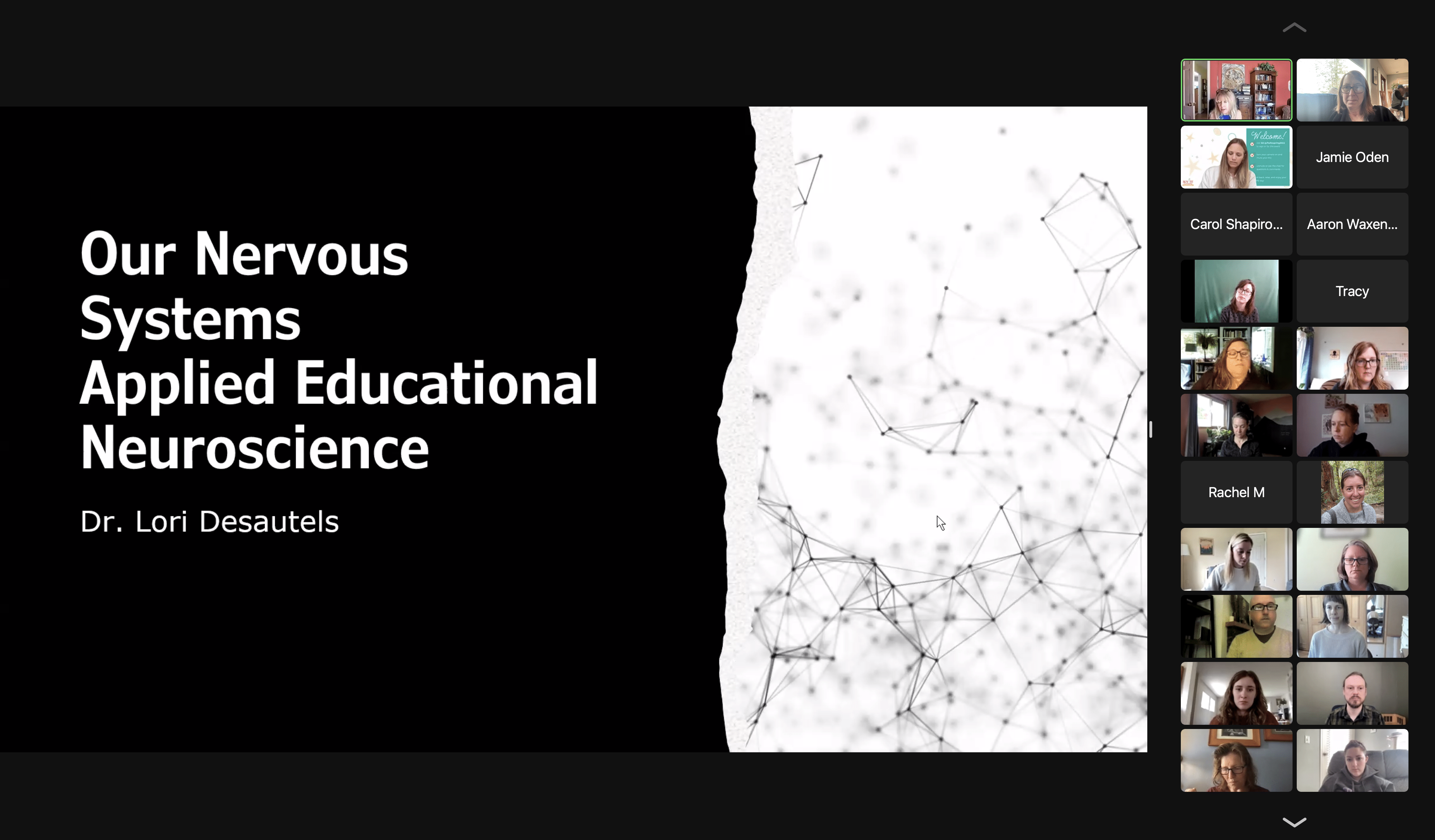We had an excellent professional development event with Dr. Lori Desautels of Butler University, who shared information on the developing brain and body and how adversity impacts well-being. This presentation focused on the neurological underpinnings of learning and education and the need for trauma-responsive approaches. It shifted our thoughts about student versus adult behaviors and emphasized that how we respond to students determines the outcome of student behaviors.

In this presentation, Dr. Desautels shared how adversity and trauma impact the developing brain and body, affecting cognition, behaviors, and relationships. She also shared research on resiliency and how our brains and bodies repair and heal through trauma and adverse conditions in this time. Dr. Desautels addressed the practices and strategies that are aligned with brain function and structure and can be implemented in our homes, schools, and communities.
As we explore trauma, adversity, and resiliency, applied educational neuroscience provides a framework that addresses the neuroeducation of the nervous system. It is through this lens that we can address the behavioral challenges, discipline protocols, and adult and student nervous system states.
Here are the top 4 things we learned!
- Correlate behavior to brain function and teach kids actual neurology. Dr. Desautels suggested checking in with body sensations at the beginning of sessions as opposed to emotions. She gave ideas of concrete practices to incorporate into sessions or into routines with students to acknowledge stress and dysregulation.
- Regulated adults can regulate kids, dysregulated adults cannot. Our own brain state is the most important one so we must start there. It’s important to become aware of our own emotions because “emotions are contagious.” As adults, we need to take time to center ourselves and be a calming presence. When we change our behavior, we will get the results that we are looking for when working with kids.
- People with trauma want validation, not to be fixed. This is a key component of Social Emotional Learning. Dr. Desautels also shared 6 Common Misunderstandings about Discipline for children who have experienced trauma.
- What you can name, you can tame. What is shareable is bearable. We learned useful language to shift the focus from student behavior to student experience and feelings. Dr. Desautels shared this wonderful visual chart to help students track the state of their nervous system. By getting at a student’s level and seeing how they have learned to process the things around them, we can help students identify what they are feeling and offer strategies to cope.
Dr. Desautels has generously shared a plethora of information on how to best support students on her website. We are grateful for these resources, lesson plans, and ideas for how to integrate social-emotional learning into our practice.





